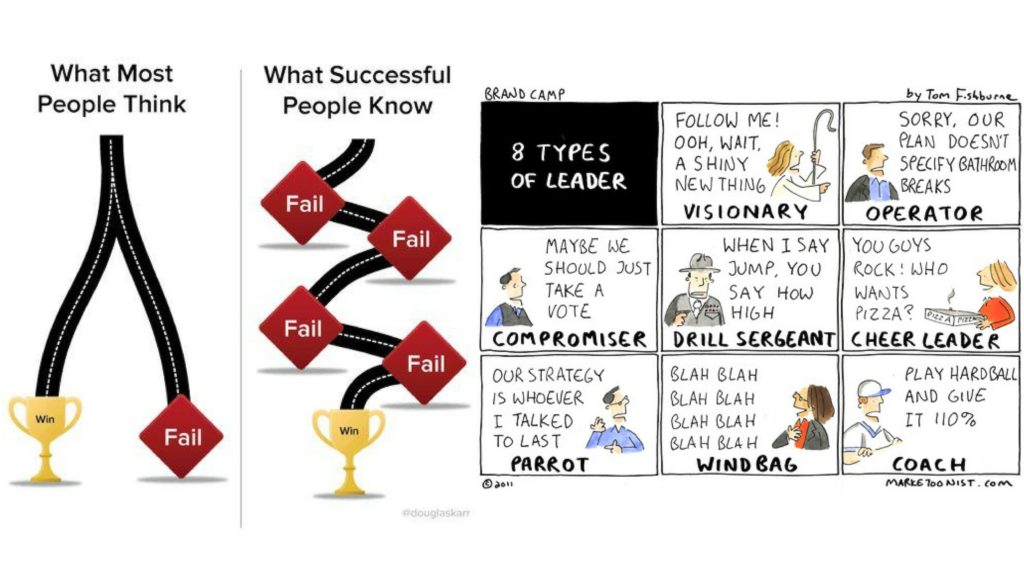Building relationships for effective leadership

I can do things you cannot, you can do things I cannot, together we can do great things – Mother Theresa
When I calculate the hours I have spent at work with my senior team, I’m staggered at the numbers! On average we spent 2340 hours together per year. Over the course of my headship, that’s 14,040 hours with a group of individuals that helped me change the lives of young people in our part of the world.
Can I say I loved every minute of it? Not without fibbing.
Can I say that I knew and loved my team? Absolutely.
Knowing your team is critical to the success you will experience together. With young peoples lives in your hands; it is even more crucial that as a leader, you get to know your team on a deeper level to ensure that you build a structure that promotes a thriving team culture.

As a leader, you have to complete a myriad of tasks but getting to know your team is one where you will not regret the time investment.
Why should we know our team? Surely everyone is here to do a job, we all get paid, everyone is professional and knows what needs to be accomplished. That may or may not be true, but you still need to know your team.
Let me suggest these reasons why:
1. Because you are in a relationship with them, and all relationships need nurturing
If you don’t know them and they don’t know you, what is the likelihood of your relationship thriving? If the relationship does not thrive, what is the likelihood that they will genuinely follow you as a leader?
2. You need to know they want the same thing as you for the school
Let’s assume they do, then you all need to have the same interpretation of the journey that is necessary to achieve the vision and objectives for that term.
3. You need to know their values
What is important to them? What do they think is trivial? What motivates them as a person? (not as a leader, but as a man or woman).
By knowing this, you are more likely to understand their point of view (note I did not say agree with it). However, if one team member is motivated by immediate praise, why would you wait until the end of the term to say well done?
4. Assess strengths vs. weaknesses
You would be wise to deploy them to their areas of strength whilst they work on their areas of weakness. You cannot do this if you don’t know them as people. They might be the Head of the curriculum, or be in charge of Key Stage One. They might be the person who analyses the data, but their title does not tell you much about their qualities and talents. You need to get to know them to find that out!
Juliet Erickson (2005) gave helpful team traits to steer leaders as they get to know their teams.
Using this framework, take some time to think about your team and plan ways to utilise their strengths in fulling the vision of your school community.

Scenario #1.
First, we have Marcus or Maya. You know them, they are a people’s person. Great at making relationships and are always asking how decisions or procedures will affect the staff or pupils. They are wonderful at collaborating and are always saying yes!
They try to involve others and will build on all the ideas from everyone in the team. They are on your side; you can see them in the meeting if you close your eyes. You like them.
Building rapport with these guys?
- If you are late you have good people reason.
- Show that you are aware of how others will be affected by what you’re proposing.
- Talk about your personal experience where relevant.
Scenario #2.
Then we have Denise or Dan. They are Mr or Ms Focused. They get to the point because they can think quickly and will ask questions about benefits and outcomes.
They can be assertive and confident (sometimes a little too assertive you think), but they are invaluable as their actions tend to get others focused and things get done. You like them.
Getting the best of them?
- Be punctual and keep the meeting short. Be prepared for a variety of possible eventualities and questions. Start with a point or outcome you want.
- Use evidence or backup that is very specific and factual.
- Make your message well-structured.
Scenario #3.
In the corner we have Analytical Alice or Abdi; ‘give me details’ they say. They need to understand the thought and rationale behind everything. How detail and data are presented is important to them and they can get frustrated if others show a lack of clarity or depth into the detail.
You do like them, but sometimes they seem like they are holding back the pace as they ponder and force others to ponder the data or detail (did I mention they like detail?).
Getting the best out of them…hmmm, tricky:
- Be pointed and technical.
- Don’t rush the pace, take your time.
- Don’t use words such as intuitive, think, believe, feel.
- Do use words such as rational, know, prove, demonstrate and analyse.

Scenario #4.
Now we notice Alan or Asmara. They are all about the process. Let’s get this done, get it done right, on time, on budget. They want you to decide a course of action, set up the timeline and don’t mess with it! If things go off track, they can seem overly upset about that.
They spend their time ensuring that people are on track and doing what is expected of them. Sometimes they are called complete- finishers. You depend on them, you like them.
To get the best out them…
- Be able to answer questions in a direct, brief and decisive way.
- Make your questions incisive, so that you know what you’re talking about. Don’t bother too much with small talk.
- If you write an email, say what you want in the first brief paragraph, including any next steps you may have discussed.
Scenario #5.
Now we have Joanne or Jermaine. They are so creative, innovative and imaginative that they sometimes seem quirky! They are great at problem-solving, seeing how things could be and going off at a tangent to explore new ways of working.
They make meetings fun and provoke others to think differently. You like them a lot.
To get their strengths to the fore…
- Wait to begin the business side of things until you see they are ready.
- Be warm friendly and talkative.
- Don’t rush go at a relaxed pace, avoid a sense of urgency.
Bring in the big picture early in the meeting, then use the rest of the meeting to bring the picture to life.
Scenario #6.
What about Rita or Richard? They are experts in their field. They are valuable members of the team, but their contribution tends to be in one specific area and that’s where they focus their questions too.
They might come across as selfish, as they only want to talk about that one area, or they may seem dismissive if the conversation does not include that area. You do like them, but they can be hard work!
Getting the best out of them?
- You get what you are given and like it!
- Just remind them from time to time to slow down so that everyone else can keep up!

Successful schools have at their heart, thriving relationships. We can see the importance of investing time in understanding your team members and using that knowledge to help them perform at their best.
Two key components of any relationship are:
1. TRUST
2. COMMUNICATION
This is no different for relationships in the workplace.
So, whatever you do to get to know your team better, it needs to be centred around building trust and developing clear genuine channels of communication.
Let me put a caveat here…when you choose to trust someone you open a door of vulnerability for yourself. This does not mean you should not open the door, but you do need to be wise.
For example, don’t lay out every single mistake you have ever made in your professional life in the first meeting, because you want to be transparent and build trust!
Second caveat… trusting someone does not mean, not holding them to account, not monitoring their performance or having high expectations!
In this article, we started by looking at the relationships. Good leaders always start with people. Next time we look deeper into the structures and ways of working of an effective school leadership team.








Responses